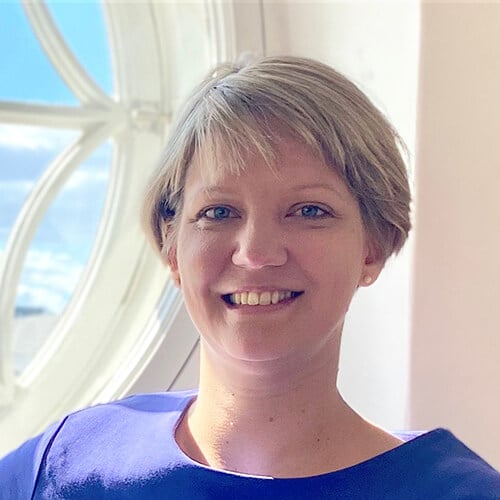Have you had to consider what you can share about your family’s weekend activities on Monday at work? Or what to reply when your colleague addresses you with a word that you don’t identify yourself with – like him or her? These are examples of daily situations sexual or gender minorities can bump into in working life that can make you feel like an outsider.
Pride month is celebrated worldwide in June to celebrate LGBTQI+ rights and the human right to be who you are and express your sexual or gender identity without fear of harrassment.
There is still a lot of work to be done both in society at large as well as in workplaces to ensure that people identifying themselves as part of sexual or gender minorities feel welcomed. In Europe, around half of those who identify as part of the LGBTQI+ community have not shared their sexual orientation or gender identity at work. In Finland, these figures are even more alarming: 92% of Finnish of LGBTQI+ people feel that they cannot be completely open in their working community.
It is likely that a person who feels the need to hide their identity also feels that they can’t share their opinions or ideas, and this limits their potential in working life. As long as minorities face discrimination, we as a work community need to visibly and actively promote a culture of inclusion.
Partnering with Pride Helsinki to amplify the voice of the Rainbow community
This year, Vincit is partnering with Pride Helsinki to promote a culture of pride & respect both at and outside of work. We want to support a world where everyone is seen and encountered as who they are, free from fear or discrimination. Pride Helsinki’s theme this year is “Encounters”. We are continuously working for Vincit to be a work community where everyone feels welcome, seen and included.
We have always been a very employee-driven company, and there is a clear connection between Vincitizens’ well being and how we succeed in our work. When Vincitizens feel connected with our community and psychologically safe, we all succeed better in our daily work. This is part of our commitment to promote diversity, equity and inclusion at work.
But I’m not an expert on diversity, so how can I promote a welcoming culture at work?
This spring we started an active learning journey on diversity and inclusion topics at Vincit. We have organized trainings on Diversity, Equity and inclusion topics for all Vincitizens and started discussions in Vincit communities on how to take those learnings into practice as colleagues and members of our work communities. In these discussions, similar learnings as well as worries have come up.
Many of us feel insecure about diversity and inclusion topics – do I have enough knowledge on the topic or am I the right person to talk about this? It can feel difficult to talk about things that you or your closest network do not have personal experiences on. Learning and understanding new terms like more gender sensitive language also takes time, since we are so used to using gendered language or anecdotes based on different stereotypes. The easiest way to tackle this fear is to talk openly about the fact that it takes practice to change our everyday speech and vocabulary to be more inclusive when gendered words and phrases come from the backbone – but the effort definitely counts!
Another challenge many Vincitizens raised was that it can be difficult to address these topics in everyday discussions. It can feel scary when you don’t know how others will take your words, and when there is risk of being misunderstood. But in an environment and culture that allows people to make mistakes and learn from them, we can move to the growth zone as inclusive colleagues. We also want to celebrate our learning journey and share positive examples of learning from our daily lives!
The work continues 365 days a year
As a work community, we want to acknowledge that promoting LGBTQI+ rights and inclusive culture requires a lot of active work, and language goes a long way in signaling to our LGBTQ+ colleagues that we want our Vincit communities to be open and inclusive. We must all do the work—and that means actively adjusting the way we speak, and apologizing when we mess up.
Here are six simple tips we shared with Vincitizens during Pride month and want to share with you, dear reader, too:
- Meeting new people: When you meet a new person, try to avoid binary and heteronormative assumptions. Ask people about their gender pronouns and share yours.
- Individual people: When you are not talking about someone specific, or when you don’t know someone’s pronouns, use gender-neutral language. Use they instead of he/she. (Finnish language hän is great in this aspect!)
- Groups of people: Include everyone by leaving gender out of your greetings. Use Vincitizens, folks, everyone or colleagues instead of ladies & gentlemen.
- Families and loved ones: Not all families have a mom, dad & kids. Not all kids have two parents. Not all married women have a husband. Use words like partner instead of wife/husband or parent instead of mom and dad.
- Listening: If a fellow Vincitizen shares their experiences on discrimination, take it as a reminder: this is a community where people trust each other. Listen instead of downplaying or joking.
- Learning: If your colleague suggests that you could use different language, take it as a learning opportunity. We all make mistakes, and it’s okay. Let’s learn together instead of shaming each other.
Culture is made by all of us and we all have a role in promoting a welcoming working environment. And while we might never be ready, we can always strive to improve and learn more both as individuals and as an organization. Happy Pride month!
Further reading:
- Diversity in Finland report (UN Women and BCG)



